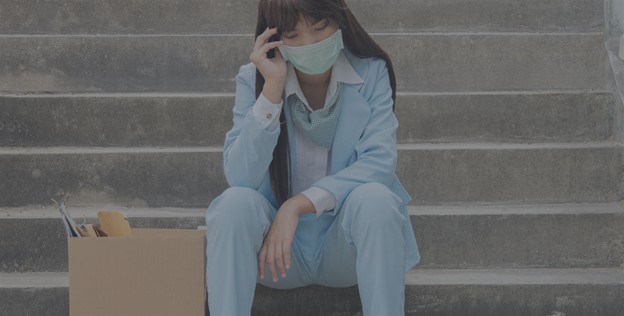As a result of the COVID-19 pandemic, the unemployment rate has risen significantly. While those facing unemployment worry about their loss of income, finding a new job, and even unemployment scams, they may also worry about how unemployment affects their credit.
Fortunately, your current employment status does not appear on your credit report or directly affect your credit score. Even if your credit report contains employers you provided on previous credit applications, this information is not comprehensive and does not indicate whether or not you are currently employed.
The mere fact that you lost your job does not affect your credit. However, losing your income can have some indirect effects on your credit.
1. Late Payments
Your payment history is the single most important factor that determines your credit score. When it comes to paying your bills, it tells creditors how reliable you are. One late payment can significantly lower your credit score, and multiple late payments can raise red flags for creditors.
Loss of income could cause you to fall behind on payments. In order to avoid this, you should establish a strict budget when you lose your job. Focus on necessities and eliminate unnecessary expenses. Hopefully, you will be able to pay your bills while you find a new job.
A late payment is better than none at all if you are behind on your payments. The later the payment, the greater the damage to your credit. Late payments are better than accounts in collections or court judgments.
2. Increased Credit Utilization
You can calculate your credit utilization by looking at how much credit you are utilizing. If, for example, you have a credit card with a $1,000 limit and a $500 balance, your credit utilization for that card is 50%. To maintain a good credit score, it’s a good idea to keep your utilization low and stay away from your credit limit.
If you lose your job, you may have to charge more expenses to your credit card and make smaller payments, which can result in higher utilization. You should limit the amount of charges you make and avoid maxing out your credit cards – this can damage your credit score and reduce your available credit for true emergencies.
3. New Credit Accounts
You can lower your credit score by opening several new credit cards or loans to help you survive unemployment. Your credit score is affected by the age of your accounts, and too many new accounts can lower it. You can also suffer short-term damage to your credit if you have too many hard inquiries from credit applications.
How to Avoid Damage to Your Credit After a Job Loss
There are many things you can do to avoid damage to your credit after losing your job:
- Employed people can build up an emergency fund that contains several months’ worth of expenditures. The fund can be used to pay your bills while you’re unemployed.
- Create a lean budget while you search for a new job. Your priorities should include bills, food, and rent. Avoid unnecessary expenses. Do not rack up too much credit card debt.
- Contact your creditors and service providers about your financial situation before you’re late on a payment. You may be able to avoid late fees and late payments on your credit report if you can arrange alternative payment arrangements. Companies would rather negotiate a compromise than see you stop paying your bills.
- Monitor your credit report and maintain it so you don’t have to dig yourself out of a hole once you get a job.
Is your personal information on the dark web? Make sure your identity isn’t at risk!

